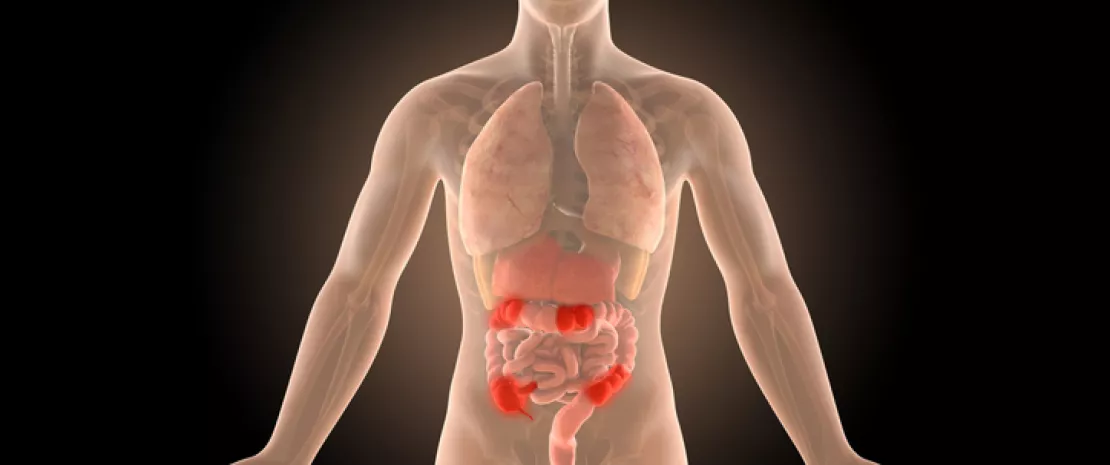Gut microbiota as a predictor of recurrence of Crohn’s disease
The presence of a certain family of bacteria in the gut microbiota may be involved in the recurrence of Crohn’s disease following bowel resection. Can the presence of these bacteria predict recurrence?
Lay public section
Find here your dedicated section
Sources
This article is based on scientific information

About this article
Up to 70% of patients with Crohn’s disease undergo a bowel resection, two-thirds of whom experience a relapse requiring a further operation. The role of the microbiota associated with the intestinal mucosa in the recurrence of Crohn’s disease is well known, but there are currently few data on the luminal environment following bowel resection. A research team carried out a large randomized longitudinal prospective study on 130 patients with Crohn’s disease following surgery with the purpose to investigate the link between the intestinal microbiota and the risk of recurrence.
Enterobacteriaceae and risk of recurrence
An endoscopy was performed 6 months after surgery in two-thirds of the patients, and a colonoscopy at 18 months in all patients, in order to detect recurrence of the disease. Stool samples were taken two weeks before surgery and 6, 12 and 18 months after surgery in order to analyze the intestinal microbiota via sequencing of the 16S rRNA gene. According to the results, abundance of Enterobacteriaceae prior to surgery and 6 months after surgery is associated with an increased risk of recurrence of the disease at 18 months, whereas an increase in bacteria belonging to the Lachnospiraceae family is associated to a reduced risk. The results also showed that while the relative abundance of these bacteria families is important, increased species diversity within a family also contributes to the risk of recurrence.
An environment conducive to relapse
Following surgery, the intestinal environment is altered (exposure to oxygen, change in pH, antibiotics, etc.), leading to a decrease in Lachnospiraceae (obligate anaerobes), some species of which produce butyrate. This decrease is thought to modify the availability and metabolism of butyrate within the colonocytes, leading to a metabolic switch and an increase in oxygen, which, according to the researchers, is responsible for the proliferation of Enterobacteriaceae (facultative anaerobes). Integrating these new data with (sidenote: De Cruz P, Kamm MA, Hamilton AL, et al. Crohn’s disease management after intestinal resection: a randomised trial. The Lancet. 2015;385(9976):1406–1417 ) should provide a full understanding of the disease.






